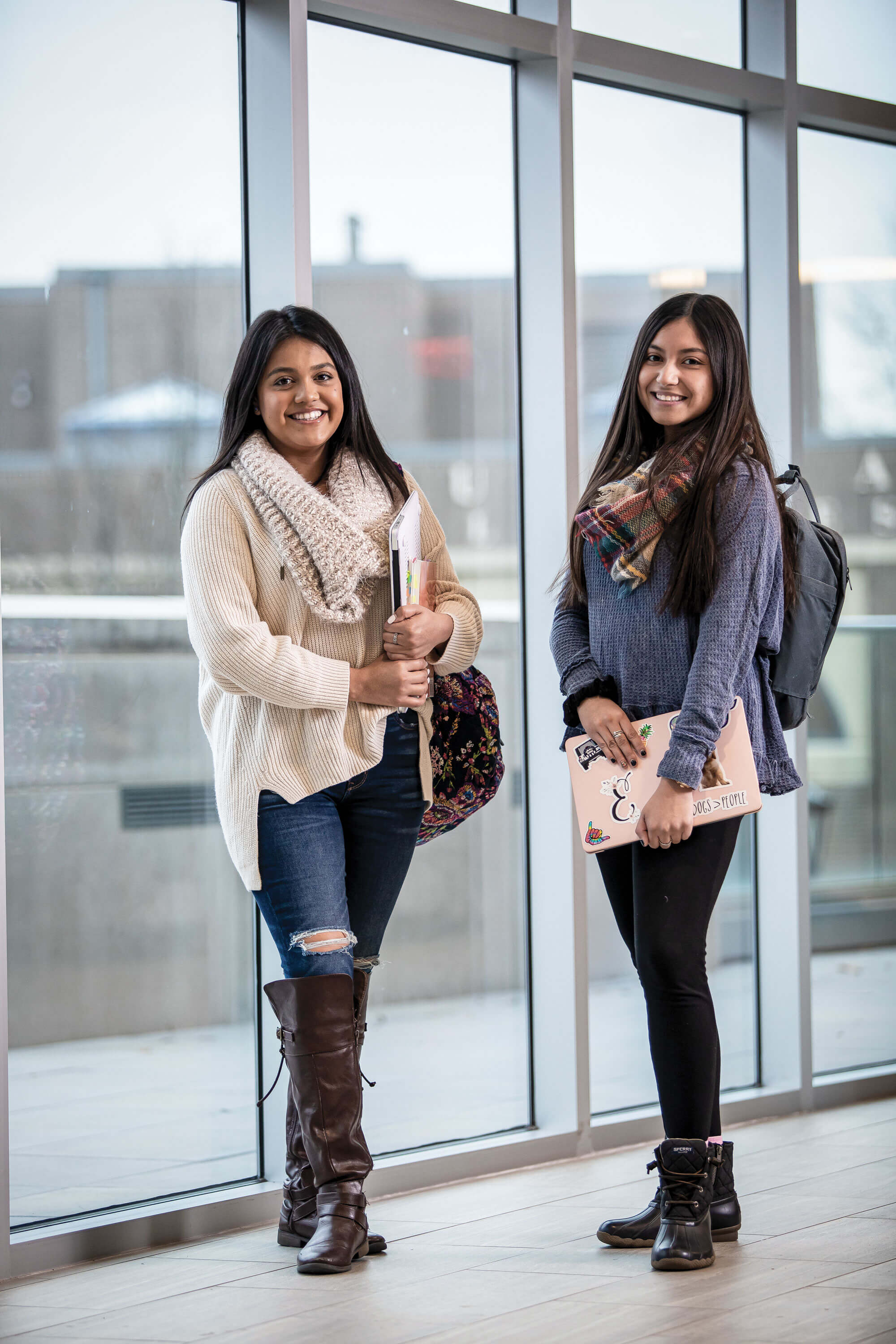
Cross Talk
Two of the first Monmouth Future Scholars grads tell how the program prepared them for success.
Since 2012, the Monmouth Future Scholars program has sent graduate interns from the educational counseling program into Long Branch public schools to mentor 6th through 12th graders who exhibit academic potential.
Two of the program’s overarching goals are to increase high school graduation rates and increase college access for first-generation students, say program directors Alyson Pompeo-Fargnoli and Cindy O’Connell. This is accomplished using a multiyear curriculum that aligns with the College, Career, and Life Readiness Framework, a research-backed approach that focuses on core competencies middle and high school students should achieve so they’re well prepared for higher education and life after college.
Last spring, the first group of Long Branch students to enter the Monmouth Future Scholars program graduated from high school, and two of the students are now first-year business majors at Monmouth. They shared how the program helped them along the way.
Maria Monzon: We were selected to be a part of the first group of scholars back in middle school. Through the years, we met every week, sometimes twice a week, with the interns from Monmouth. They’d help us with homework. Sometimes we’d have assigned readings that we’d discuss the following week.
Emily Martinez: As we got older, we talked more about the transition from high school to college. We learned about the level of work that was expected in college, how to apply, how much college actually costs, what financial aid was available to us.
When we started applying to colleges, there was a Monmouth student there each week guiding us through that process, helping us along as we were accepted to or declined by the schools we applied to. I had friends who weren’t a part of the program, and I don’t think they understood the application process the way I did.
Seeing how many first-gen kids there were at Monmouth made me want to come here even more. I knew I’d fit in.
Monzon: Applying to college is stressful for anyone—thinking about how you’re going to pay for it, knowing what you have to hand in and when you have to do it by. But for someone like me, who wasn’t born in the U.S., applying to college is like 10 times more stressful: You’re not sure if colleges will even want you. There were so many things I didn’t know about the process as an undocumented student. And this program really helped me with that. Two students in particular—Ms. [Jennifer] Mora [’15, ’17M] and Ms. [Danielle] Mur- ray [’15, ’19M]—knew my situation and still encouraged me and spent extra time helping me.
Martinez: Every year we came to Monmouth for something called Immersion Day. We’d tour campus, attend workshops, and part of the day students from Monmouth’s First to Fly program [first-generation students] talked with us about their experiences here. Seeing how many first-gen kids there were at Monmouth made me want to come here even more. I knew I’d fit in.
Monzon: The program gave us so many opportunities to see what Monmouth is about and showed us the great community we could be a part of here. That stayed with me while I was applying to colleges, and when it came time to decide where to go, I knew I wanted to be a part of this community.
Martinez: It will be cool to be able to talk with the younger Monmouth Future Scholars at Immersion Day this year and to be able to give something back to the community.
Monzon: We can say to them, “We were just in your spot a few years ago. We know it can be a bit stressful. But keep going, keep pushing, because you can do this too.”